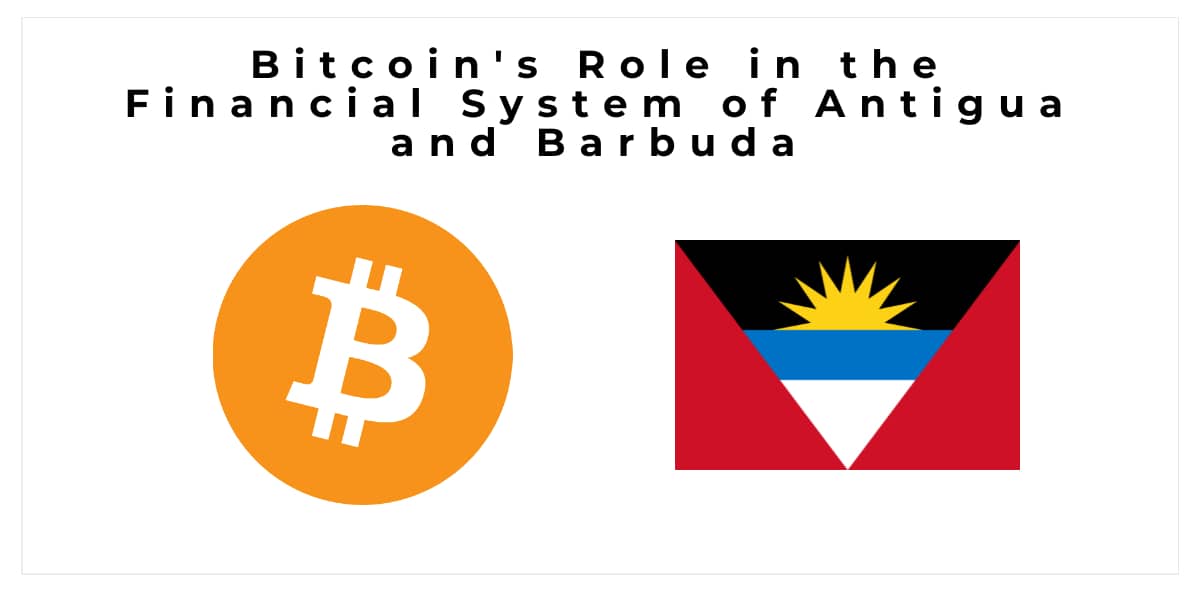Bitcoin, a decentralized digital currency, has gained traction in Antigua and Barbuda's financial system since its inception in 2009. Unlike traditional currencies, it is not controlled by any central authority or government. The citizens of Antigua and Barbuda can use Bitcoin as a form of payment, invest in it, and use it to transfer funds across borders without the need for intermediaries, such as banks or payment processors. Explore the news spy for gaining proper tips and tricks of bitcoin trading.
One of the key advantages of using Bitcoin in Antigua and Barbuda is the anonymity it offers. Transactions made with Bitcoin are anonymous, thereby reducing the risk of identity theft and fraud. Additionally, Bitcoin is not subject to the same fees and charges as traditional currencies, making it particularly attractive to those who wish to transfer funds across borders.
Another advantage is the transparency of the blockchain, which is the underlying technology that enables Bitcoin transactions. The blockchain is an immutable digital ledger that records all Bitcoin transactions. This means that every transaction made with Bitcoin is publicly recorded and can be verified by anyone on the blockchain network. Therefore, the blockchain eliminates the need for intermediaries, such as payment processors and banks, thereby making transactions more secure and cost-effective.
Moreover, Bitcoin's decentralized nature makes it less vulnerable to economic volatility, which is particularly relevant in Antigua and Barbuda given its vulnerability to external economic shocks. The citizens of Antigua and Barbuda can use Bitcoin to hedge against the volatility of their national currency, the East Caribbean Dollar.
In conclusion, Bitcoin is playing an increasingly significant role in Antigua and Barbuda's financial system. Its advantages are numerous, including anonymity, transparency, decentralization, and economic stability. As more citizens and businesses in Antigua and Barbuda recognize the potential benefits of Bitcoin, it is expected that its usage will continue to grow in the years ahead..
Benefits of Bitcoin Trading for Finance:
Bitcoin, the world's first decentralized digital currency, has been making headlines in the financial world since its launch in 2009. With its increasing popularity and adoption, it is revolutionizing the traditional financial system by offering various benefits for traders and investors alike.
First and foremost, Bitcoin provides a highly secure medium of exchange that eliminates the need for third-party intermediaries. Transactions on the Bitcoin network are recorded on a decentralized ledger known as the blockchain, which ensures transparency, immutability, and resistance to hacking and fraud. This makes Bitcoin an ideal means of conducting cross-border transactions, as it eliminates the need for costly foreign exchange conversions and reduces the risks of currency fluctuations.
In addition, Bitcoin trading offers low transaction fees compared to traditional financial services such as banking and wire transfers. Unlike traditional banking, which charges fees based on transaction amounts or account balances, Bitcoin trading fees are determined by the user and can be as low as a few cents per transaction. This makes Bitcoin trading accessible to a wider range of people, including those in developing countries who may not have access to traditional banking services.
Another benefit of Bitcoin trading is the potential for high returns on investment. Due to its limited supply and high demand, Bitcoin has seen a meteoric rise in value over the years. This has attracted investors seeking to profit from the cryptocurrency's price fluctuations. Moreover, Bitcoin trading allows for 24/7 trading, which means that investors can take advantage of market opportunities at any time.
Furthermore, Bitcoin trading is highly accessible and user-friendly, thanks to the availability of trading platforms and tools. These platforms offer real-time market data and analysis, as well as trading bots and social trading features that enable users to learn from and copy the trading strategies of successful traders.
Final Words:
It is clear that Bitcoin has the potential to revolutionize the way we think about money and finance. With its decentralized nature, low transaction fees, and fast transactions, it could have a lasting impact on how people store their wealth in the future. That being said, many challenges still remain when it comes to fully integrating this technology into our financial system. As more governments and institutions begin to embrace cryptocurrencies as part of their economic infrastructure, they will need to consider ways of balancing security with scalability while ensuring regulatory compliance. The role of Bitcoin within the global economy is an interesting one which only time can tell us what lies ahead for this digital asset class.








